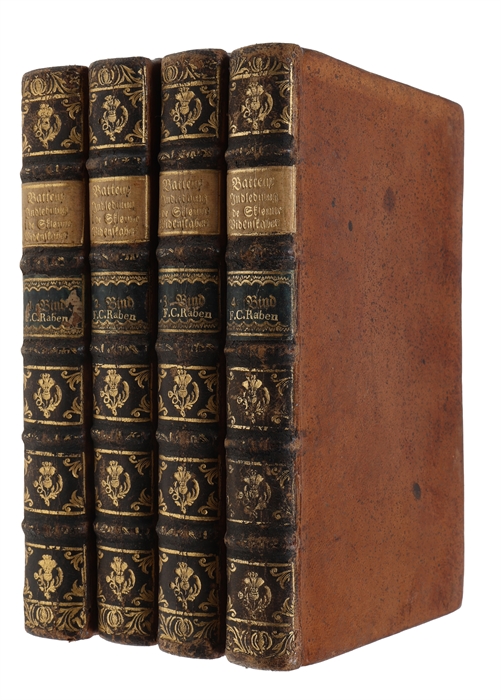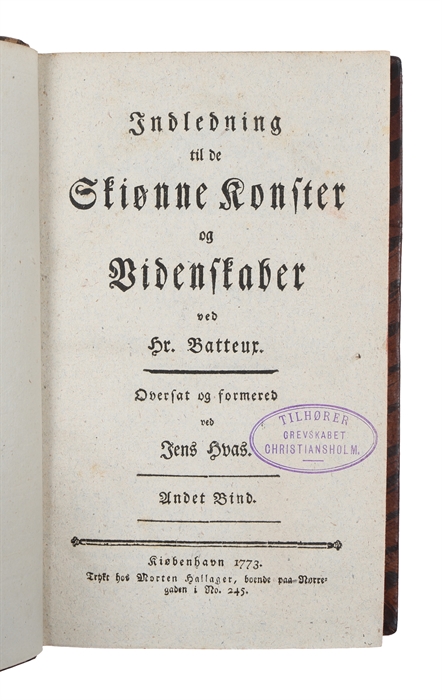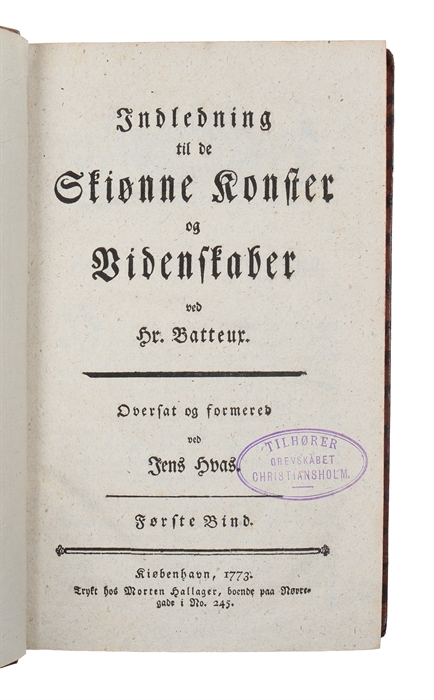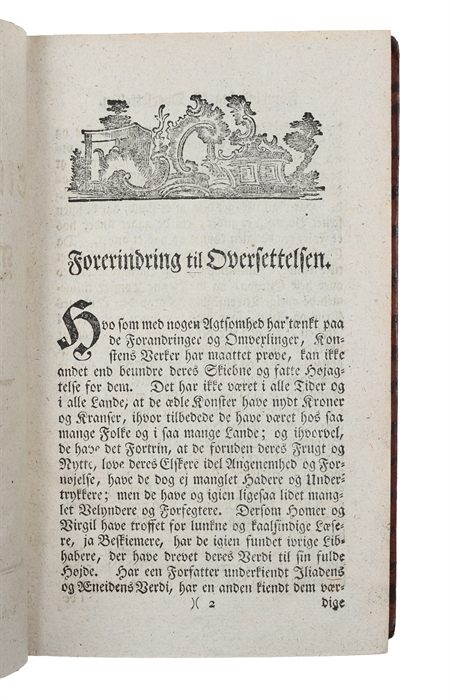DEFINING "FINE ART"
BATTEUX, CHARLES.
Indledning til de skiønne konster og videnskaber. 4 vols.
Kiøbenhavn, Hallager, 1773 & 1774.
8vo. Uniformly bound in four contemporary full calf bindings with five raised bands and richly gilt spines. All edges coloured in red. Light wear to extremities, a few stains and scratches to boards. "F. C. Raben", Danish Count and traveller, in gilt lettering to spines. Stamp ("Christiansholm", Danish castle, owned by F. C. Raben) to each title-page. A nice set. (16), 425, (7) pp.; 395, (5) pp.; 396, (4) pp.; 426, (6) pp.
Rare first Danish translation of Batteux’ “Les Beaux-Arts”, originally published in French in 1746, where he attempted to find a unity among existing theories of beauty and taste in "a single principle". His views were widely accepted, not only in France but throughout Europe. “The decisive step towards the system of the fine arts (thereby to the modern idea, "fine art") was taken by the Abbé Batteux in his famous and influential treatise ... [making him] the first to set forth a clearcut system of the fine arts in a treatise devoted entirely to this subject.” (Paul Oskar Kristeller, "The Modern System of the Arts”). “In 1746 he published his treatise Les Beaux-Arts réduits à un même principe, an attempt to find a unity among the various theories of beauty and taste, and his views were widely accepted. The reputation thus gained, confirmed by his translation of Horace (1750), led to his becoming a member of the Académie des Inscriptions (1754) and of the French Academy (1761). In the Beaux-Arts, Batteux developed a theory which is derived from Locke through Voltaire’s sceptical sensualism. He held that Art consists in the faithful imitation of the beautiful in nature. Applying this principle to the art of poetry, and analysing, line by line and even word by word, the works of great poets, he deduced the law that the beauty of poetry consists in the accuracy, beauty and harmony of individual expression. This narrow and pedantic theory had at least the merit of insisting on propriety of expression. His Histoire des causes premières was among the first attempts at a history of philosophy, and in his work on Epicurus, following on Gassendi, he defended Epicureanism against the general attacks made against it.” (Encyclopedia Britannica). OCLC only list two copies, both in Denmar.
Order-nr.: 61801




